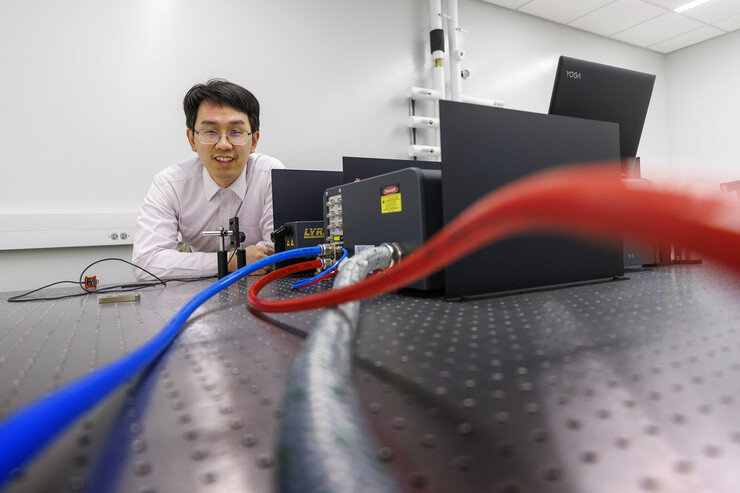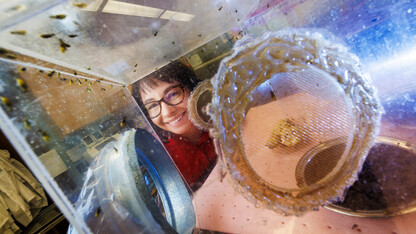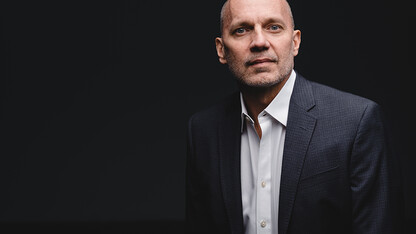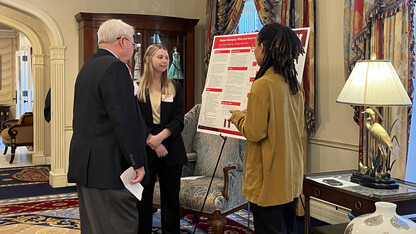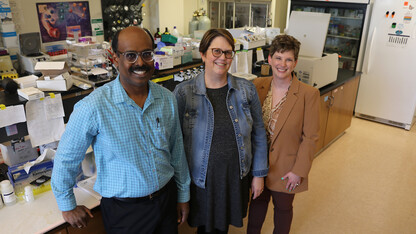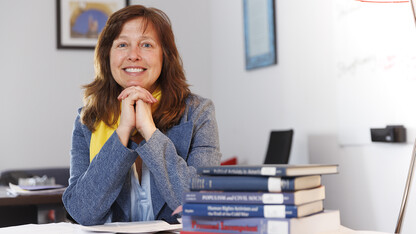· 4 min read
Bao aims to make quantum systems function at room temps
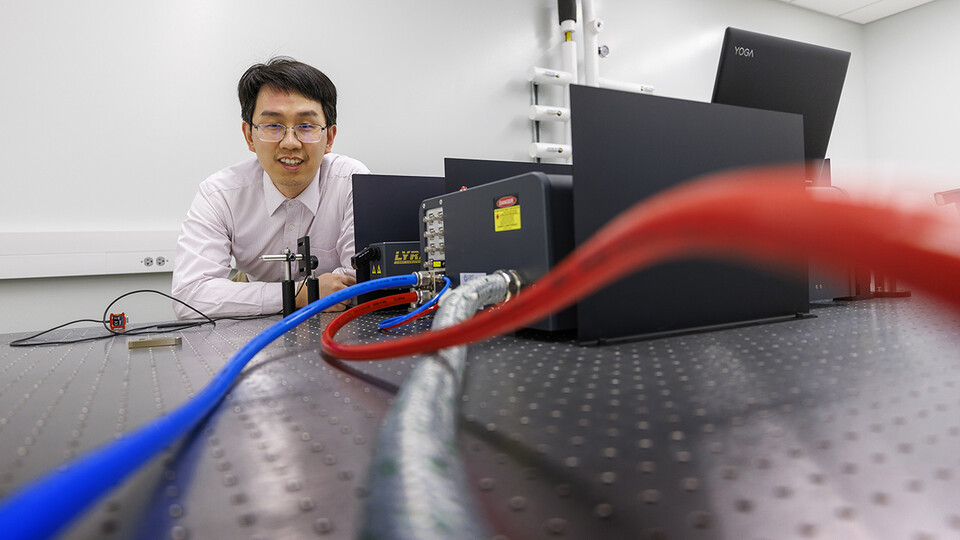
Quantum simulators are key tools in the study of quantum systems, but their use is limited because they must operate with bulky ultra-low-temperature vacuum systems beyond the capacity of many research labs. A University of Nebraska–Lincoln engineer is working to make simulators function even at room temperature, which could significantly expand the scope of such research.
Wei Bao, assistant professor of electrical and computer engineering, has received a five-year, $756,713 grant from the National Science Foundation’s Faculty Early Career Development Program to support this work.
Quantum effects are any phenomena that typically happen at small scales and cannot be explained by classical mechanics. Many important research problems involve quantum effects that classical computers cannot fully solve. A quantum simulator is a device that can actively consider the complex interactions — quantum effects — to model these real-world systems in a programmable fashion. However, these quantum simulators typically must work at ultra-low temperatures, making them expensive to prepare and operate.
“This means the experiments cannot even be carried out by many research labs,” Bao said. “You have to have very dedicated special instruments and special expertise to do so.”
“Essentially we’re trying to develop a device that’s going to operate at room temperature,” he said. “This will lower the bar for a lot of researchers to access those quantum simulations.”
Bao said his work seeks to synthesize novel optical materials, integrate them with photonic structures, demonstrate functional room-temperature quantum simulators and use them to study the rich, exotic materials properties that previously have been challenging to fully understand.
Quantum simulations can help researchers understand the properties of quantum systems or even experimentally create quantum states of matter. The process is essential in the highly competitive new era of quantum technologies, which are expected to transform the fields of information processing, sensing, communication, imaging and more.
Nebraska has prioritized quantum science and engineering as one of its Grand Challenges. It was named a research priority because of the university’s expertise in this area and the impact Husker research can make on the exciting and promising field.
Quantum mechanics has been successful in fundamentally describing atoms, molecules and many types of condensed matter. It is the foundation of virtually all technological applications that define the modern way of life, including computers, lasers, telecommunications and advanced medical imaging such as MRI.
A new “quantum revolution” is under way, sparking worldwide competition for supremacy in potentially transformative quantum-based applications. For example, the second quantum revolution is expected to transform the fields of information processing, sensing, communication, imaging and complex simulation.
Soon, quantum technological applications are expected to come online that advance MRI-like medical diagnostic tools; enable compact clocks for navigation independent of satellite-based GPS; quantum cryptography for safer data transfer, both wirelessly and on the internet; and modeling of complex systems, with implications in drug design, food production and security.
In addition to his research, Bao’s CAREER grant includes an integrated education and outreach component to place Nebraska on the leading edge of the field. He will work with teachers via workshops and labs to provide them with background about the technology. Also, the program will engage undergraduate and high school students in workshops and internships, with a focus on first-generation college students and students from traditionally underrepresented groups, seeking to increase the diversity and competitiveness of the future workforce.
He also plans to develop a graduate course in the field.
“This integration can introduce the research frontier to talented young people and further inspire them to join the field of quantum photonics as the next-generation competitive workforce,” Bao said.
The National Science Foundation’s CAREER award supports pre-tenure faculty who exemplify the role of teacher-scholars through outstanding research, excellent education and the integration of education and research.
